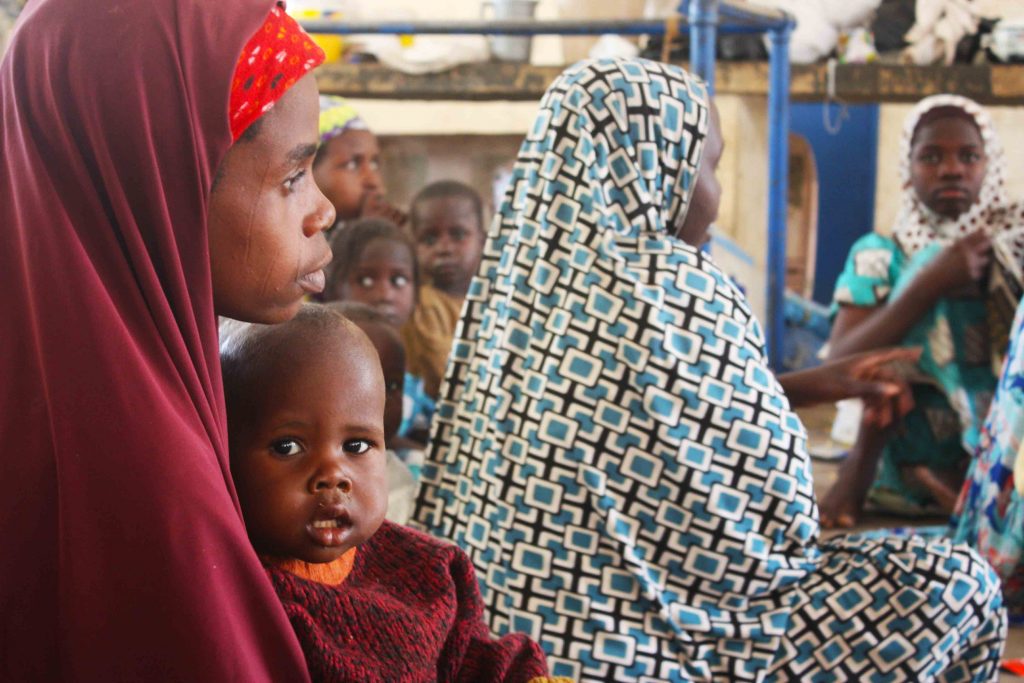When Clarisse’s husband died of malaria last year in the Cameroonian city of Douala, she was kicked out of their home by his family and forced to marry his brother.
After having sex with her new husband, the 34-year-old discovered she had syphilis, a sexually transmitted disease that can lead to blindness and stroke if untreated.
“He accused me of infidelity. He called a meeting of our families and told them I was a prostitute,” she said tearfully, fiddling with the gold wedding ring from her first marriage.
“Everyone accused me of being a witch and said it was me who had killed my husband … my stepmother threatened to kill me,” added Clarisse, who fled with her daughter to the outskirts of Douala, where she lives in an old wooden shack on a riverbank.
Millions of widows in sub-Saharan Africa are left destitute after being disinherited and robbed of their property, women’s rights campaigners said ahead of International Widows’ Day on Thursday.
Many, like Clarisse, are abused and exploited by their in-laws, forced to undergo cleansing rituals or marry one of their husband’s relatives in a practice known as widow inheritance.
Traditional cleansing rituals are intended to rid a widow of her husband’s spirit. In some communities widows are forced to have sex with a stranger, in others they have to clean their husband’s corpse and then drink the dirty water.
Widow inheritance, cleansing rites and the eviction of women from their homes are fuelling the transmission of HIV across the continent, and may have contributed to the spread of the world’s worst Ebola outbreak in West Africa, experts say.
“Widows are damned if they go through the rituals and damned if they don’t,” Karen Brewer of Widows Rights International (WRI) told the Thomson Reuters Foundation by phone from London.
“If you accept these inhumane and degrading rituals, you run the risk of disease. If you don’t, you are condemned for not saying goodbye to your husband, and are abused and ostracized.”
HIV THREAT
Widows across Africa are often kicked out of their homes by their in-laws because national and community laws do not allow them to inherit their husband’s property, or because women do not know if they have rights to the land, campaigners say.
In Cameroon’s capital Yaounde, Berthe sits outside her flimsy house, watching her two sons play football as she recalls the beautiful home they lived in before her husband’s death.
After the funeral last year, her husband’s brother and sister asked Berthe if they could see the deeds for the house.
Without thinking, the newly widowed mother handed them over. A year later she was told the house had been sold.
“When I threatened to complain, they beat me nearly to death – saying I was just a poor woman married to a rich man,” said Berthe, who now carries facial scars and walks with a limp.
Fearing the consequences, many widows decide not to pursue their land rights, said lawyer Yveline Ntanfa Bandji, director of the Douala-based Women’s Counselling and Information Center.
Yet widows are entitled to live on their late husband’s land until they die, and their children, not the in-laws, are the legal heirs, she said.
With no income or possessions, widows forced out of their homes are vulnerable to rape and may resort to selling sex to survive, putting them at greater risk of HIV, experts say.
Many women in Africa are widowed very young after marrying much older men. If they cannot support their children they may in turn marry off their own daughters early, said Bethany Brown, an expert on widows at Human Rights Watch.
“There is a vicious cycle of widowhood and early marriage – impoverishment among widows is a major factor in perpetuating child marriage,” she added.
NEGLECTED
There are more than 258 million widows worldwide, nearly 10 percent of whom live in sub-Saharan African, according to the Loomba Foundation’s 2015 World Widows Report.
Around one in 10 African women are widows, yet there is little data on their lives or well-being.
Widows are often overlooked because they do not know their rights, or feel compelled to stay silent about the abuse they face, said Naana Otoo-Oyortey, head of women’s rights charity FORWARD.
“Widows may not see the rituals as violating their rights, but as a normal way to honor their husband. Even if they want to speak out, they know there will be repercussions,” she said.
While many African countries such as Burkina Faso, Cameroon and Ghana have laws to protect widows’ rights, these are often trumped in rural areas by customary laws, campaigners say.
Widows’ rights activists across Africa are now pushing to change harmful cleansing rituals.
Rather than having sex with a relative of her late husband, many widows in Zimbabwe offer a bowl of water if they want to stay with the family.
In Sierra Leone, women were encouraged to wash stones instead of corpses during the Ebola outbreak to avoid spreading the virus.
“Traditional cleansing rites helped spread Ebola until they were halted and changed … there is no reason these alternative mourning rites could not become common,” said WRI’s Brewer.
Several civil society groups across sub-Saharan Africa work to inform widows of their rights, support their inheritance claims, and provide refuge for those evicted or ostracized.
But Marthe Chantal Ngouassa, president of the Cameroonian charity Widows in Distress, said governments too often neglected widows and ignored the hardships they faced.
“All widows have the same problem – they are marginalized, stigmatized and abused,” she said. “The death of the widow begins with the death of the husband.”

